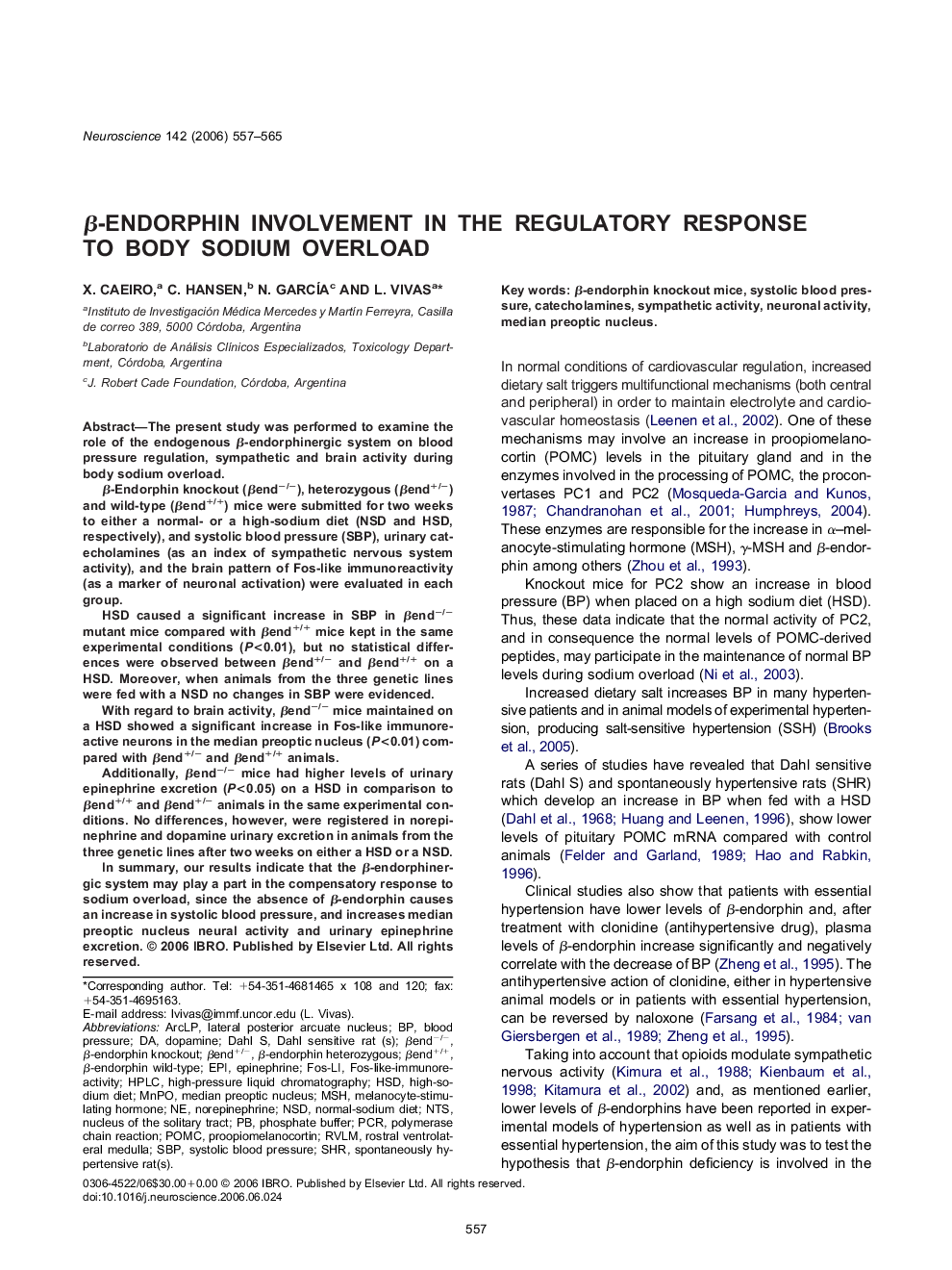| Article ID | Journal | Published Year | Pages | File Type |
|---|---|---|---|---|
| 4341517 | Neuroscience | 2006 | 9 Pages |
The present study was performed to examine the role of the endogenous β-endorphinergic system on blood pressure regulation, sympathetic and brain activity during body sodium overload.β-Endorphin knockout (βend−/−), heterozygous (βend+/−) and wild-type (βend+/+) mice were submitted for two weeks to either a normal- or a high-sodium diet (NSD and HSD, respectively), and systolic blood pressure (SBP), urinary catecholamines (as an index of sympathetic nervous system activity), and the brain pattern of Fos-like immunoreactivity (as a marker of neuronal activation) were evaluated in each group.HSD caused a significant increase in SBP in βend−/− mutant mice compared with βend+/+ mice kept in the same experimental conditions (P<0.01), but no statistical differences were observed between βend+/− and βend+/+ on a HSD. Moreover, when animals from the three genetic lines were fed with a NSD no changes in SBP were evidenced.With regard to brain activity, βend−/− mice maintained on a HSD showed a significant increase in Fos-like immunoreactive neurons in the median preoptic nucleus (P<0.01) compared with βend+/− and βend+/+ animals.Additionally, βend−/− mice had higher levels of urinary epinephrine excretion (P<0.05) on a HSD in comparison to βend+/+ and βend+/− animals in the same experimental conditions. No differences, however, were registered in norepinephrine and dopamine urinary excretion in animals from the three genetic lines after two weeks on either a HSD or a NSD.In summary, our results indicate that the β-endorphinergic system may play a part in the compensatory response to sodium overload, since the absence of β-endorphin causes an increase in systolic blood pressure, and increases median preoptic nucleus neural activity and urinary epinephrine excretion.
